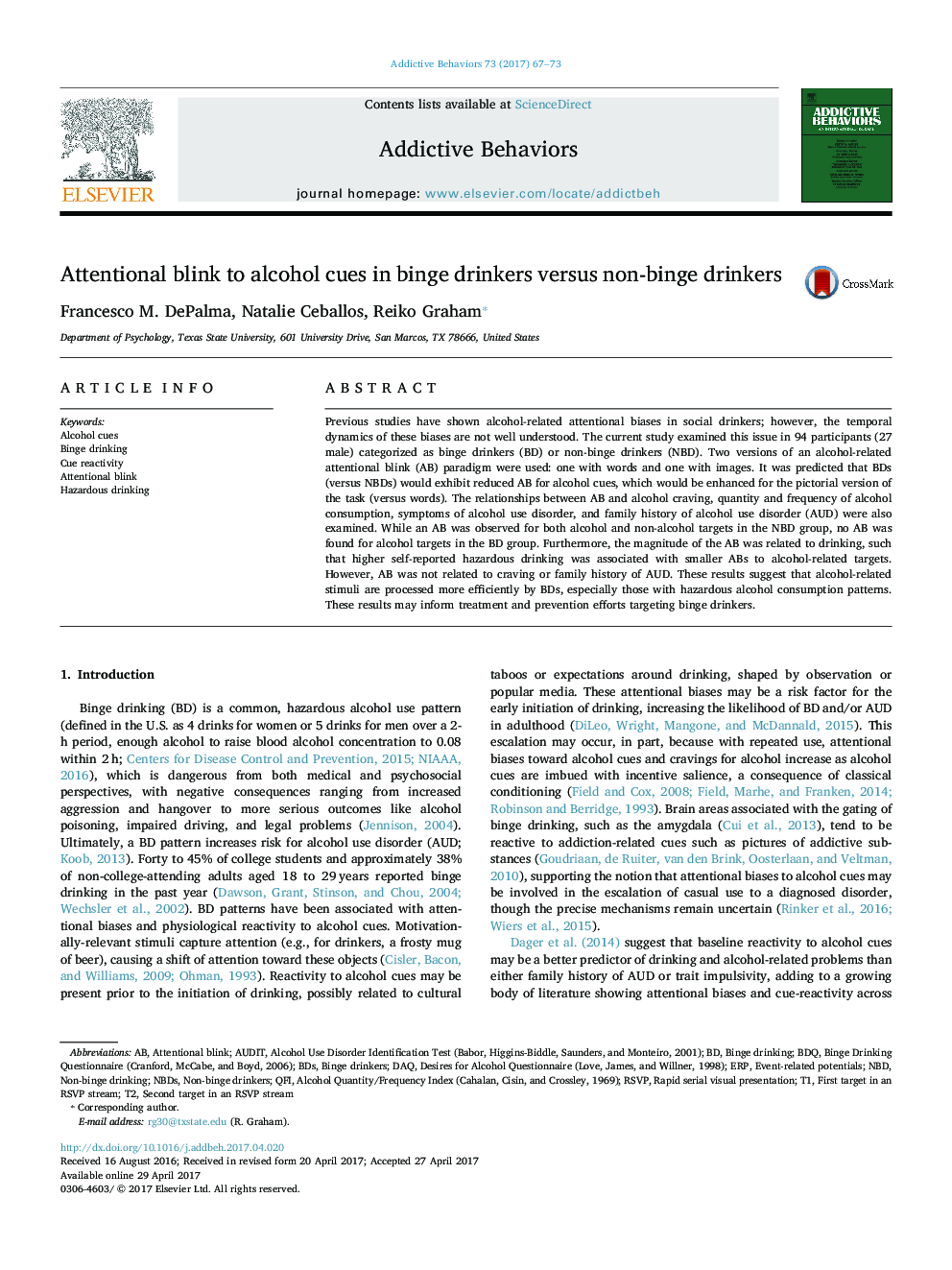| کد مقاله | کد نشریه | سال انتشار | مقاله انگلیسی | نسخه تمام متن |
|---|---|---|---|---|
| 5037565 | 1472498 | 2017 | 7 صفحه PDF | دانلود رایگان |
- Alcohol images may be more motivationally relevant than words, particularly for non-BDs.
- An attentional blink (AB) to alcohol targets was not observed in binge drinkers (BDs).
- The AB was prolonged to non-alcoholic targets in BDs relative to non-BDs.
- Hazardous drinking in BDs was associated with smaller ABs to alcohol targets.
- Alcohol stimuli are processed more efficiently by BDs with higher AUDIT scores.
Previous studies have shown alcohol-related attentional biases in social drinkers; however, the temporal dynamics of these biases are not well understood. The current study examined this issue in 94 participants (27 male) categorized as binge drinkers (BD) or non-binge drinkers (NBD). Two versions of an alcohol-related attentional blink (AB) paradigm were used: one with words and one with images. It was predicted that BDs (versus NBDs) would exhibit reduced AB for alcohol cues, which would be enhanced for the pictorial version of the task (versus words). The relationships between AB and alcohol craving, quantity and frequency of alcohol consumption, symptoms of alcohol use disorder, and family history of alcohol use disorder (AUD) were also examined. While an AB was observed for both alcohol and non-alcohol targets in the NBD group, no AB was found for alcohol targets in the BD group. Furthermore, the magnitude of the AB was related to drinking, such that higher self-reported hazardous drinking was associated with smaller ABs to alcohol-related targets. However, AB was not related to craving or family history of AUD. These results suggest that alcohol-related stimuli are processed more efficiently by BDs, especially those with hazardous alcohol consumption patterns. These results may inform treatment and prevention efforts targeting binge drinkers.
Journal: Addictive Behaviors - Volume 73, October 2017, Pages 67-73
